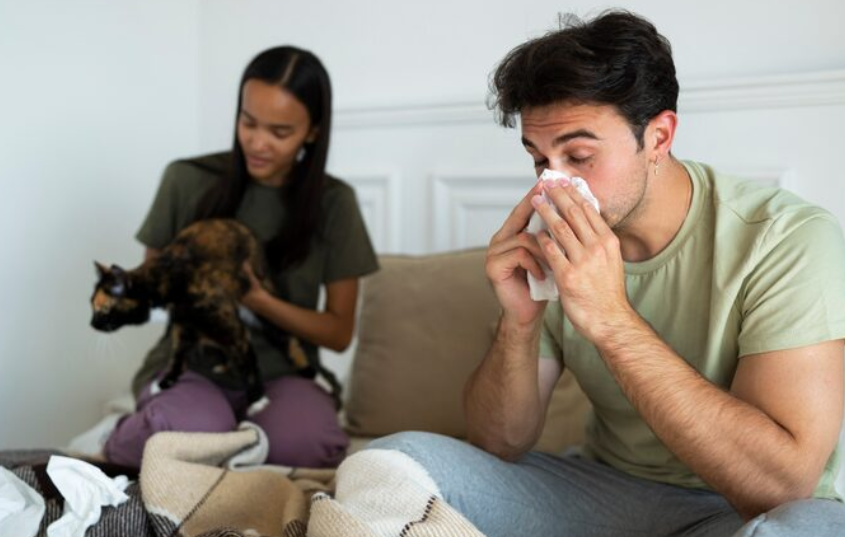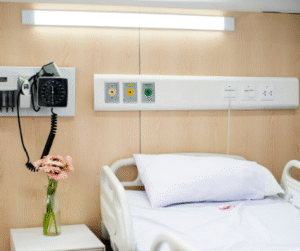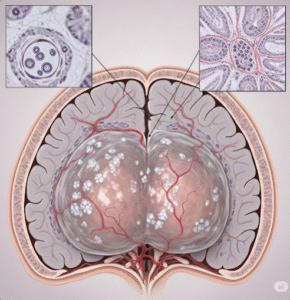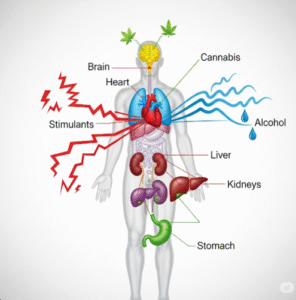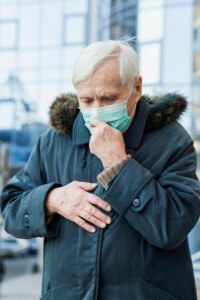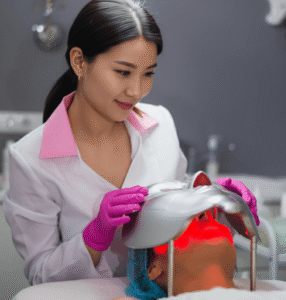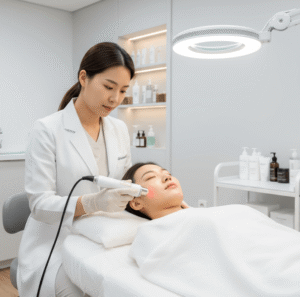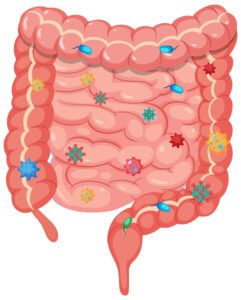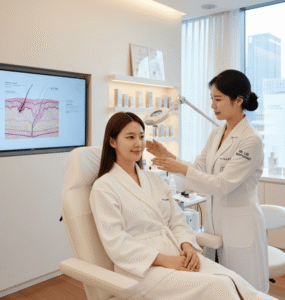Overview
Cat and dog allergies are immune system reactions to proteins found in pet dander, saliva, or urine. These allergies can cause mild to severe symptoms, affecting the respiratory system, skin, and eyes. In Korea, allergy specialists and modern clinics provide diagnostic testing, management strategies, and immunotherapy to help patients reduce symptoms and improve quality of life.
Symptoms
- Sneezing and runny or congested nose
- Itchy, watery, or red eyes
- Coughing, wheezing, or shortness of breath
- Skin rashes, hives, or eczema flare-ups
- Swelling around the eyes or lips in severe cases
- Asthma exacerbations in sensitive individuals
Causes
Allergic reactions occur when the immune system overreacts to proteins found in:
- Cat dander (skin flakes, saliva, urine)
- Dog dander (skin flakes, saliva, urine)
- Indirect exposure from contaminated clothing, furniture, or public spaces
Risk Factors
- Family history of allergies or asthma
- Early childhood exposure to pets in sensitized individuals
- Existing respiratory conditions such as asthma or eczema
- Living in urban environments with high exposure to allergens
- Poor indoor air quality or inadequate ventilation
Diagnosis
In Korea, cat and dog allergies are diagnosed using:
- Skin prick tests to identify specific allergens
- Blood tests measuring allergen-specific IgE antibodies
- Medical history review of symptoms and exposure patterns
- Challenge tests in specialized clinics in rare cases
Prevention
- Minimizing exposure to pets for sensitized individuals
- Regular cleaning and vacuuming with HEPA filters
- Using air purifiers to reduce indoor allergen levels
- Washing hands and changing clothes after pet contact
- Restricting pets from bedrooms or areas with frequent human activity
Treatment Options in Korea
- Medications
- Antihistamines to relieve sneezing, itching, and hives
- Nasal corticosteroid sprays for congestion and inflammation
- Eye drops for itchy or watery eyes
- Leukotriene receptor antagonists for asthma symptoms
- Immunotherapy
- Allergen-specific immunotherapy (allergy shots or sublingual tablets)
- Reduces sensitivity over time for long-term symptom relief
- Administered under supervision of allergy specialists in Korea
- Lifestyle and Environmental Management
- Limiting pet access in the home
- Frequent cleaning of pet bedding and living areas
- Using protective covers on mattresses and furniture

